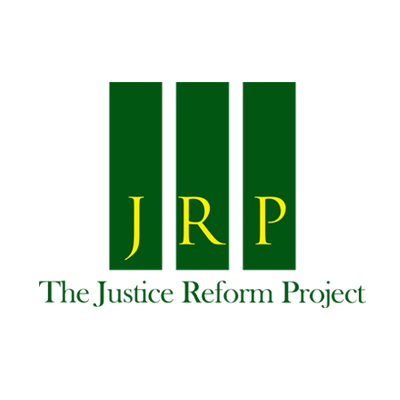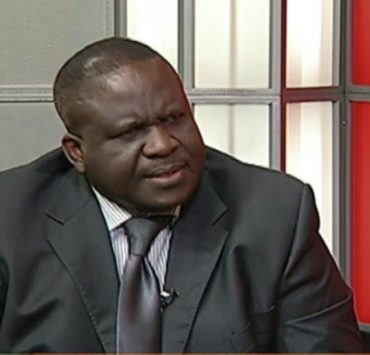Justice Reform Project (JRP) Faults 2020 Legal Practitioners Bill

Chukwudi Onyewuchi is a graduate of Geology from Obafemi Awolowo…
The Body of Benchers is seeking to check the legal profession’s declining standards by replacing the Legal Practitioner Act, 2004 with an improved Legal Practitioners Bill 2020. But the Justice Reform Project (JRP) believes the bill is a self-serving and retrogressive attempt by senior lawyers to give the power of control and regulation of the profession to senior lawyers.
The Justice Reform Project is a coalition of Nigerians across the legal profession, civil society, and the general public who are stakeholders in a justice system that works efficiently, effectively, and equitably. JRP’s mission is to activate actors and stakeholders (including the public users of legal services and the system of justice as well as legal practitioners) to transform the culture, values, ethics, and quality of justice delivery in Nigeria.
We are deeply concerned at a Bill proposed by the body known as the Body of Benchers to replace the Legal Practitioner Act CAP L11, Laws of the Federation of Nigeria, 2004 and to re-enact a new Legal Practitioners Act “…to provide for reforms and regulate the legal profession…”.
Our concern is two-fold. The first is that the legal profession and its stakeholders are widely ignorant of this far-reaching piece of legislation which has not been ventilated or discussed even by branches of the Nigeria Bar Association.
Secondly, because in our estimation the Bill is replete with self-serving and retrogressive provisions which will prejudice the public interest in a strong, effective, and independent legal profession.
The effect of the Bill is to give the power of control and regulation of the legal profession to the Body of Benchers through its various Committees (as identified in the First Schedule of the proposed Bill). It further states that the Body of Benchers shall determine the terms of reference, regulations and mode of appointment, tenure, quorum, and manner of meetings of each Committee.
The proposed powers of the Body of Benchers are set out in section 1(2) of the Bill and include:
(a) Call to the Bar of eligible candidates.
(b) Taking all measures which appear to it to be necessary or expedient for maintaining at all times the traditional values and wellbeing of the legal profession.
(c) The exercise of disciplinary jurisdiction over members of the legal profession.
The proposed membership of the Body of Benchers under section 1(3) of the Bill is to now also include:
(i) President of the National Industrial Court
(ii) Life Benchers
(iii) The President of the Senate (if a lawyer)
(iv) The Speaker of the House of Representatives (if a lawyer)
(v) Chairmen of the National Assembly Committees on Judiciary (if they
are lawyers).
(vi) 20 Legal practitioners nominated by NEC of NBA with a minimum of 15 years post-call and 5 may be Law Teachers (reduction of 10 from the current position).
Section 1(9) of the Bill gives power to the Body of Benchers to create a Caretaker Committee of the NBA where any of the scenarios in section 1(8) of the Bill come into play including where there is a dispute among members of the NEC of the Nigeria Bar Association and it is impossible or impractical for the NEC to undertake or continue the function of managing the affairs of the NBA.
By Section 4 of the Bill – the Body of Benchers is funded by the Federal Government through the National Judicial Council.
Section 5(1) of the Bill sets out the composition of the Bar Council and includes:
(i) The Chairman is the Attorney General of the Federation
(ii) Two Past Presidents of Nigeria Bar Association
(iii) Six Attorneys-General of States
(iv) Six eminent members of the Bar
(v) A retired Justice of the Court of Appeal
(vi) Six Senior Advocates of Nigeria
Section 11 of the Bill prescribes Pupillages
(i) From commencement of Act every person has to undertake a 2-year pupillage in the offices of an experienced legal practitioner.
(ii) Any person not undertaking two-year pupillage shall not be entitled to commence practice as a sole practitioner or set up alone, in partnership or other arrangements with other legal practitioners.
(iii) Body of Benchers shall make rules and set up criteria for the conduct of pupillage for new entrants to the Bar.
(iv) Body of Benchers shall develop and maintain a Pupillage Handbook dealing
with structure and duration of programme, fair treatment and selection of pupils, duties, training and responsibility of pupil supervisors, support and advice for pupils, complaints procedure and remuneration of the pupil.
(v) Division set up to be responsible for pupillage programme and qualify legal practitioners as pupil supervisors.
Section 12 of the Bill gives responsibility of the Body of Benchers to set standards, inspect, accredit and approve law offices of legal practitioners
Section 15 of the Bill – Rules to allow foreign lawyers to practice in Nigeria under regulations to be made by the Chief Justice of Nigeria after consultation with the Body of Benchers. The Section refers to and defines “friendly jurisdictions”.
Section 17 of the Bill repeals the LPA 1975 as amended. Other highlights are outlined below:
First Schedule
Adds the General Council of the Bar to its list of Committees
Legal Practitioners Disciplinary Committee – changes the numbers of those on the committee and adds that the Body of Benchers has the power to add additional members as it sees fit. The Chief Justice of Nigeria will make the rules of proceedings and the procedure to be followed.
It prescribes penalties for unprofessional conduct;
Affirms, disciplinary jurisdiction of Supreme Court
And Restoration of names to Roll
Second Schedule
Legal Practitioners Privileges Committee, is to include Life Benchers as appointed by Chairman, Body of Benchers
Adds a Legal Practitioners Remuneration Committee – appointments made by the Attorney General of the Federation
Clients’ Accounts added
Deals with unauthorised practice of law.
Problem with the Bill
The Justice Reform Project views this Bill as an urgent threat to a profession that is already failing in professional output, structure and ethics.
The proposed Bill gives overall regulatory authority over the legal profession to the Body of Benchers. The Bill makes no reference to what its regulatory objectives are but rather usurps the role of both the Nigerian Bar Association and the Bar Council. What is extraordinary about the Bill is that it decreases the numbers of legal practitioners eligible for membership of the Body of Benchers down to 20 from 30 but allows the legislative arm of Government to become members of the Body if they are lawyers i.e., the Senate President, the Speaker of the House and the Chairmen of the National Assembly Committees on Judiciary. The Speaker of the House of the House of Representatives, the Chairman of Senate Committee on Judiciary, Human Rights and Legal matters and the Chairman of the Federal Judicial Committee (House of Representatives) would be eligible to take their place on the Body of Benchers.
This has far-reaching consequences on the issue of independence, for example, should member(s) of the legal profession do or say anything the Government perceives as being a challenge to its authority or that they just do not like it can use its influence within the Body of Benchers to take action against that / those legal practitioners!!
There are other extremely concerning features of the Bill.
a) Firstly, the power of the Body of Benchers to take over the functions of the Nigerian Bar Association by the formation of a Caretaker Committee in the circumstances outlined in section 1(8) of the proposed Bill. Section 1(9)(b) gives the Body of Benchers the sole power to decide who will be appointed to the Caretaker Committee.
b) Secondly, it is proposed that the Body of Benchers as a regulator is to be funded by the Federal Government through the National Judicial Council. This in itself is of grave concern and begs the question of how it can act as a regulator of the legal profession when its paymaster is the Federal Government (this has implications for independence and transparency). If members of the legal profession do or say anything the Government perceives as being a challenge to its authority or that they just do not like it can use its influence within the Body of Benchers to take action against that legal practitioner!!
c) Thirdly, the composition of the Bar Council is of real concern for a number
of reasons but by far the most concerning is that the Body of Benchers will be in total control of who is appointed to the Council – there is absolutely no transparency of the criteria for appointments e.g., what is meant by ‘eminent’ members of the Bar?
Regulation of the legal profession is extremely important and as such the regulatory authority must set out and abide by regulatory objectives i.e.
(a) to maintain public confidence in the provision of legal services;
(b) to promote and protect public and consumers interest;
(c) to promote the rule of law and improve access to justice;
(d) to recognize and preserve the status of the legal profession;
(e) to ensure the independence, integrity and honour of members of the legal
profession;
(f) to increase public understanding of the citizen’s legal rights and duties;
(g) to encourage an independent, strong, diverse and effective legal profession;
(h) to establish and maintain standards for the continued education, competence and responsibility of members of the legal profession and notaries public; and
(i) to promote transparency, proportionality and efficiency in the regulation of the legal profession.
The Body of Benchers in its current format is a relic of its colonial past. It should not be the gatekeeper of the legal profession when it comes to reform or regulation of the profession. Its role can be as no more than a stakeholder in any discussions. The whole concept of the Benchers system comes from the Inns of Court in England (Gray’s Inn, Lincoln’s Inn, Inner Temple and Middle Temple). Each Inn has Benchers who make up the governing body and appoints new Benchers (on a nomination basis) from its existing Barrister members. The Inns do have Honorary Bencher appointments for persons who are not members of the Inn but have achieved distinction in any area of public or professional life relevant to the interests of members of the Inn. The Inns have supervisory and disciplinary functions over its members each Inn also provides libraries, dining facilities, professional accommodation, education and training to its student and junior barrister members.
Nigeria does not have the system of the Inns of Court and it is, therefore, right to question the whole concept of the Body of Benchers. In the perception of students studying at the Law Schools it represents no more than an opportunity for the Benchers to dress up and show the level of elitism that exists in the profession in Nigeria. By contrast Benchers in the four Inns, sit on various committees for the administration of the respective Inn, including scholarship award panels, discipline, advocacy training and of course call ceremonies for successful students. In its current form, it is totally not fit for the purpose and there ought to be a reform of the Body of Benchers.
In 2018 a draft Bill was prepared with wholesale reform of the legal profession including the establishment of the “Legal Profession Regulation Council of Nigeria” setting out its function and composition – the composition was inclusive of all stakeholders in the legal profession and included lay members on the basis of selflessness, integrity, objectivity, accountability, openness, honesty and leadership (7 principles of public life).
Proposals were set out for funding the Council that did not involve funding from the Federal Government and the Council would be run by a Chief Executive through its Secretariat. It was proposed that a number of Committees would be set up within the Council of which the Body of Benchers would be one of them – its role was to be responsible for formal Call to the Bar of persons seeking to become legal practitioners including all measures which appear to it to be necessary for maintaining the traditional values of the legal profession.
Appointment to the Body and any of the other 10 committees would be on the basis of the 7 principles of public life.
The 2018 draft bill was extremely keen on transparency and the concept of independence which are totally lacking in the Bill proposed by the Body of Benchers which has all the hallmarks of wanting the opposite of transparency and independence! – keeping control of the legal profession to the political and judicial elite.
Chukwudi Onyewuchi is a graduate of Geology from Obafemi Awolowo University. He enjoys writing and is passionate about what he does. Hence, he always puts in all of his efforts towards attaining good results and sharing stories that will impact readers and the world at large.













